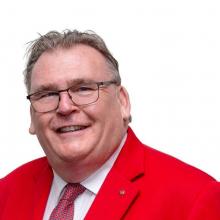
On Wednesday, Southland Mayor Rob Scott voiced his vision for the region to consist of two unitary authorities: one district-based and one unitary-based.
The move would combine the four existing councils and reduce costs while at the same time improve efficiency, he said.
But Gore Mayor Ben Bell responded with fears it was selling "hugs and rainbows" to ratepayers.
Local government expert Dr Andy Asquith, of the University of Technology Sydney, has expressed concern too, saying the announcement caused him "a bit of consternation".
Dr Asquith said there was an assumption amalgamation increased efficiency, but that was not always the case.

"There’s something called the cost of democracy.
"That is the idea of having people who represent us, and there’s a price to pay for that."
People were already questioning the value of local government, Mr Asquith, an expert in New Zealand local politics, said.
For him, the biggest concern was that larger councils generally meant less connection with those on the street.
"Councils become more distant, more disconnected."
He believed smaller councils had an edge on larger ones because councillors were more likely to be known, which could increase voter turnout.
Ultimately, he did not think the proposed changes would go ahead.
"The golden rule of amalgamations is turkeys don’t vote for Christmas.
"If you’ve got three mayors and you amalgamate three councils, there’s only one mayor, isn’t there?
"So there’s only one set of foreign junkets, and baby kissing."
Local Government NZ chief executive Susan Freeman-Greene said it was inevitable councils and communities had conversations about amalgamation, especially in the face of financial pressure.
While amalgamation was one option, there were a range of ways councils could collaborate including through joint committees and other arrangements, she said.
"Ultimately, it should be up to councils and their communities to decide what is best for them."
According to data from Vote Local, overall voter turnout for the 2022 local election was just over 40%.
Southland recorded a turnout of 48%, while Invercargill reached 52% and Gore 53%.
Kaikōura led the way at 62%, with Carterton and Westland close behind on 59%.
Auckland came in at 36%, while Hamilton recorded the lowest turnout at 29%.
■LDR is local body journalism co-funded by RNZ and NZ On Air.











